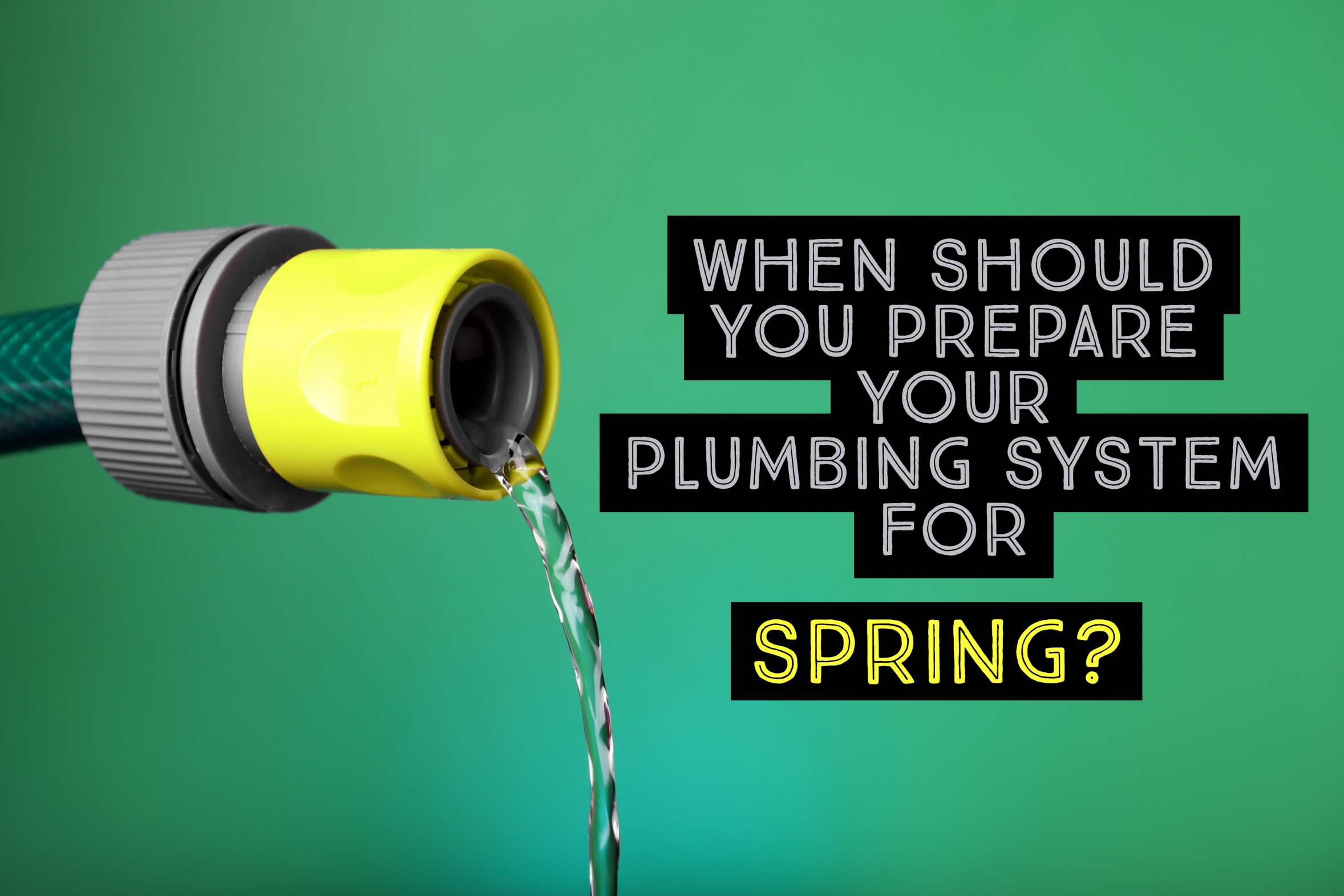At Lebanon Plumbing & Drain, we always want our valued customers to be prepared for whatever seasonal transitions come their way. So with the onset of early spring weather inching its way forward, it’s time to prepare your plumbing system for the forthcoming temperate changes too! Here’s a short list to guide you in your spring preparations:
HOW CAN YOU PREPARE AND PROTECT YOUR PLUMBING SYSTEM FOR THE SPRING TRANSITION?
1. INSPECT YOUR MAIN WATER SHUT-OFF VALVE: Your main water shut-off valve may not get turned off/on often. In fact, you may not even be able to recall when exactly the last time you did so. If this is the case, it would not be a bad idea to check on this fixture, ensuring it can be turned off and on without difficulty. If you find it hard to rotate clockwise or counterclockwise, it may be time to consider upgrading this shut-off valve. The last thing you will need if a plumbing emergency occurs is to have complications with maneuvering the main water shut-off valve.
2. INSPECT FOR LEAKS:
- Faucets & Sink: Not all leaks and drips are significantly noticeable. Often, your faucets or sinks may have the tiniest leak you may not have noticed before. Therefore, it is a good idea to give your faucets and sinks a once-over now and then (a good rule of thumb is every season.) Perform this inspection by ensuring there are no drips or leaks around your sink fixtures or underneath. Sometimes, a leak under the sink can go undetected for a while before it is noticed, resulting in water damage to the items and the cabinet underneath. In addition, you should check your pipes below the sink to confirm that rusting has not formed.
- Toilets: Don’t forget about those toilets too! The same rule applies to all the toilets in your house. If your toilet has constantly been running, or there is water accumulating around your toilet’s base, you want to resolve this as soon as possible. Letting a minor issue sit and manifest can enable the problem to grow into a larger, unmanageable one.
3. INSPECT YOUR DRAINS: Drains can quickly accumulate hair and gunk buildup. For this reason, we think checking all the drains in your sinks, tubs, showers, etc., would be prudent. If any hair or gunk is piling up on or in your drain, take a moment to clean it out before it turns into an unreasonable clog. Drain screens in tubs prevent hair from catching inside the drain. But it’s still essential to perform a light cleaning now and then to avoid major clogs from forming and requiring professional cleaning.
4. INSPECT YOUR OUTDOOR FIXTURES: Since your outdoor plumbing fixtures have not been used during the past cold season, you should check on them and make sure everything is running smoothly. Turn on your outdoor spigots, and let them run for a minute. You may hear a spurting or popping noise at first, but this is normal, and the water should flow shortly thereafter. Furthermore, after turning the spigot back off, wait a min to verify there are no persistent leaks or drips.
5. INSPECT YOUR WATER HOSES & SPRINKLERS: Following the above point, it’s also imperative you inspect your water hoses and sprinkler system if you have one. These components should have been put up in storage for the winter season, so before you pull them out, reattach them to your outdoor fixtures, and leave them there for the rest of the season, please make sure they are still in good working condition. Frigid weather can cause water hoses to shrink, and the dry air may result in cracks or other damage to these items. For this reason, ensuring no holes, leaks, or cracks is highly recommended.
6. INSPECT THE SUMP PUMP: Next, if your home has a sump pump, you will want to ensure it is ready for all the rainy seasons. “April showers bring May flowers…” after all. So, it’s important to prepare your home for any natural occurrences such as flooding. Check your sump pump by pouring a couple of buckets of water directly into the pump basin. This should kickstart the sump pump into action. If you find that it is not responding as it should, please give us a call. Also, keep in mind that it is advised that your sump pump should be cleaned every 3-4 months. So, take advantage of the spring cleaning season to add this to your list, as you want your sump pump running at its highest efficiency!
7. INSPECT YOUR WATER HEATER: Sediment will build up in your water tank over more extended periods of time. Unfortunately, this will decrease your water heater’s efficiency and reduce its overall life span. Having your water heater inspected at least once a year is recommended. With a water heater inspection, we can flush your tank, which will ultimately release any previously built-up sediment, thus enabling your water heater to operate optimally.
8. INSPECT YOUR YARD DRAINS & GUTTERS: Last but not least – don’t forget about your gutters and outdoor drains! Yard drains and gutters are meant to direct rainfall and rain pools away from your home and surrounding area. So, if leaves and other outdoor debris are left unattended, they will clog these essential components. You may clean out these areas yourself or hire a professional to do so. Just keep in mind you want to have it done before the rainy season hits full force!
Face the spring without hesitance and be ready for all the seasonal changes with our spring plumbing tips. And remember, if you need anything – and we mean anything, please do not hesitate to reach out to us. You can reach Lebanon Plumbing & Drain today at (513) 427- 2443, or schedule an appointment online now by clicking here!




